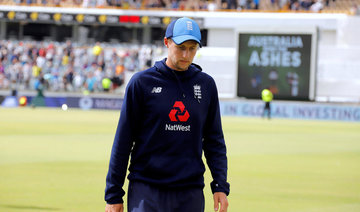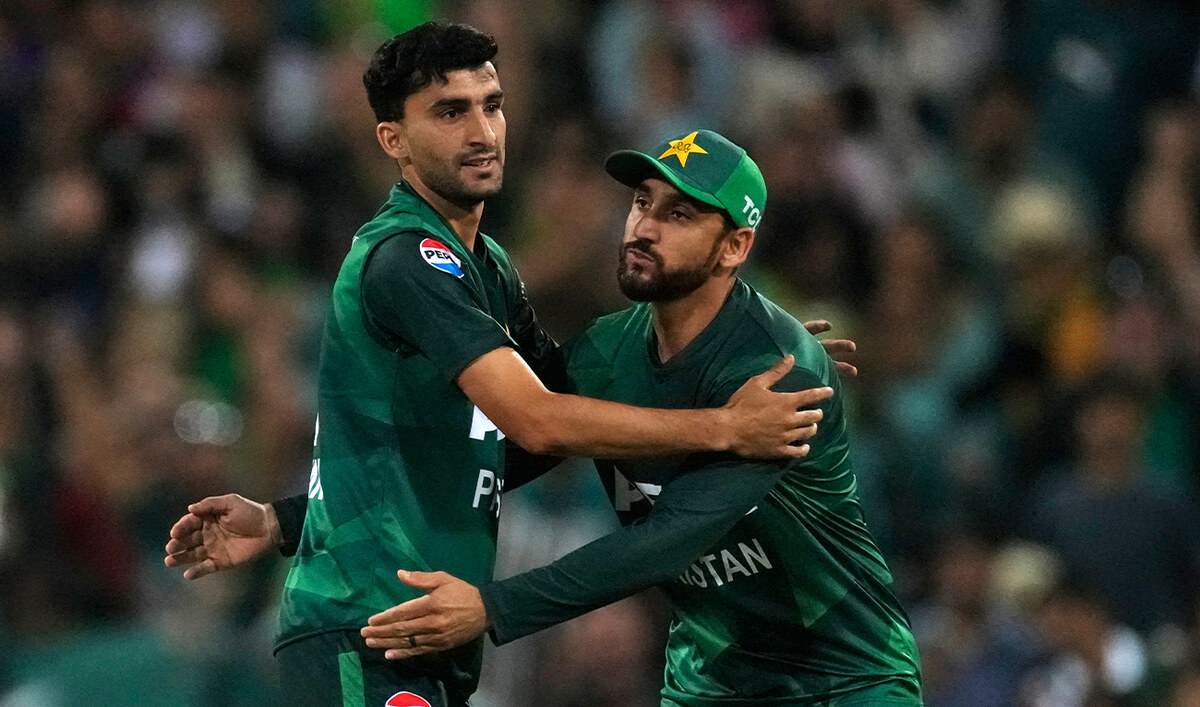LONDON: When Chris Gayle finally decided Test cricket was not for him, confirming what the rest of the cricketing world already knew, few were surprised. The swashbuckling, big-hitting Jamaican had always had a love-hate relationship with the longer form of the game. His comments in 2009 about hoping Twenty20 eventually “superseded” Test cricket were laughed off at the time. Now, they carry a sense of prophetic foreboding.
Adil Rashid and Alex Hales — who both last played a Test match in 2016 — decided this week to concentrate solely on white-ball cricket and, by doing so, ruled themselves out of Test selection for England. Given their modest records, not many fans will be losing sleep about their unavailability for the Pakistan and India series later this year. But the fact that this is two England players, still more than capable of playing red-ball cricket, should be ringing alarm bells for the England and Wales Cricket Board (ECB) and making waves at the very top of the game. Sadly, their decision reflects a growing and worrying global trend.
The issue of player free-agency — allowing players to pick and choose when and where they play white-ball competitions — has been ongoing in Pakistan, the West Indies and other less affluent cricketing nations for some time now. But, if Hales and Rashid’s decisions pave the way for an influx of young English players turning their back on domestic first-class cricket to chase large amounts of money in lucrative T20 leagues like the Indian Premier League, Australia’s Big Bash League or the upcoming ECB-sanctioned city-based competition, its impact on English Test cricket will be inevitable and damaging.
While 10 years ago these leagues were seen as retirement funds for aging legends, they are ever-increasingly being seen as a full-time career choice for young cricketers. And who can blame them? Huge contracts, shorter seasons in leagues around the world throughout the year and the adulation of thousands rather than the dozens that frequent County Championship grounds.
Yet, the International Cricket Council (ICC) seems either oblivious to the impending demise of first-class cricket as a result of this, or it simply does not care. Considering the way the organization has treated the game in the last decade, it appears to be the latter.
It has come up with a ludicrously packed schedule for international Test cricket, which has undermined its importance in the eyes of many fans. It has been responsible for the destruction of the unique spirit of the game, symbolized most starkly by stripping the umpires of the final decision. And the establishment under the ICC’s watch of franchise-based domestic T20 leagues maybe bringing in millions in revenue , but is also turning the game into little more than a slogging competition. All of this has led to a growing apathy from fans toward the longer form of the game, a few nostalgic purists aside.
In a little over 10 years, the ICC has managed to ruin the delicate balance between bat and ball, hundreds of years in the making and so unique to cricket. With the quick-thrills and instant gratification it is allowing to flourish unchecked now piquing the interest of youngsters in those few remaining bastions of red-ball cricket (India, South Africa and Australia), it has become clear that if it does not take steps to protect the traditional form of the game, we will all be hearing the death knell of red-ball cricket ringing loudly in our ears all too soon.
WHO MIGHT DITCH THE RED-BALL GAME NEXT?
KRAIGG BRATHWAITE (West Indies) — While his namesake Carlos leads the West Indies and has already set the world of T20 alight, Kraigg has yet to have his head turned by the shortest form. However, given the shambles West Indian Test cricket is in, it might not be long before he gives up the headache and starts cashing in outside the Caribbean.
TEMBA BAVUMA (South Africa) — Here is a man who has more than ably supported the Proteas’ opening line-up since his debut in 2014. But perpetually under-appreciated by the South African media and supporters, it might not be long before he gives it all up and turns his Cape Cobras stint into a full-time white-ball career.
KANE WILLIAMSON (New Zealand) — Perhaps the least likely as he is New Zealand’s Test captain. But with his lucrative tie-ups with IPL’s Sunrisers Hyderabad, Yorkshire and Barbados Tridents in the Caribbean Premier League clashing with an entire northern hemisphere summer, a few seasons of that might see him give up on his not-so-lucrative Black Caps commitments.






























